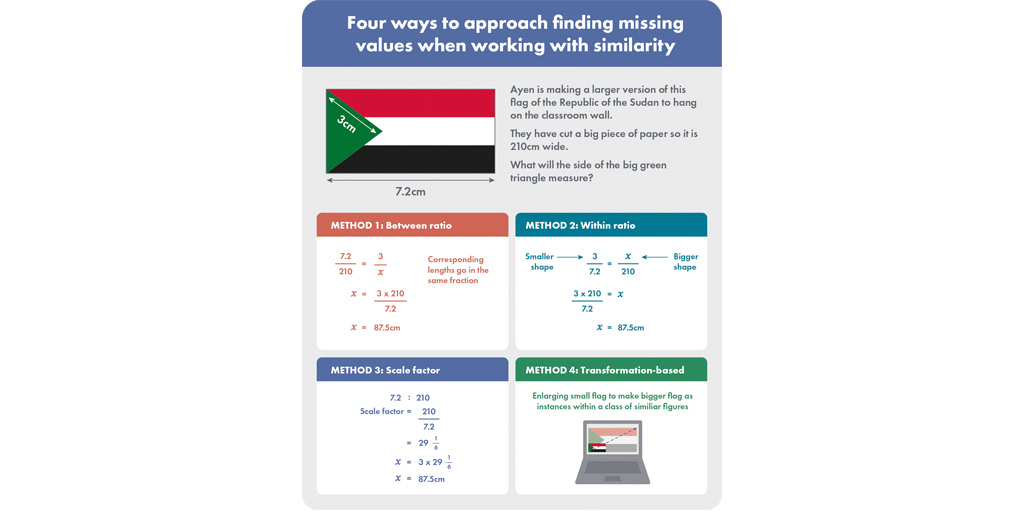09 November 2021

What does research suggest about the teaching and learning of similarity?
- Similarity brings proportional reasoning and geometry together, offering a context through which to develop the idea of mathematical argument and proof and move from visual to logical reasoning
- Early intuitions about similarity are developed when children play with and describe models and distorted 2D and 3D shapes
- The everyday language and ideas of sameness compared to that of mathematical similarity can cause confusion for students
- Static approaches to similarity involve identifying scale factors and “matching” lengths or angles, although identifying corresponding parts is often challenging for students
- Similarity tasks can be considered as differentiating between similar and non-similar shapes or constructing similar shapes
- Similarity can be explored through the additive process of tiling or the multiplicative idea of scaling; both give insights into the geometrical properties of the shapes or objects involved
- Similar shapes or objects can be identified, and missing values calculated, by considering between ratios, within ratios and scale factors, or using more dynamic approaches involving technology
View Espresso